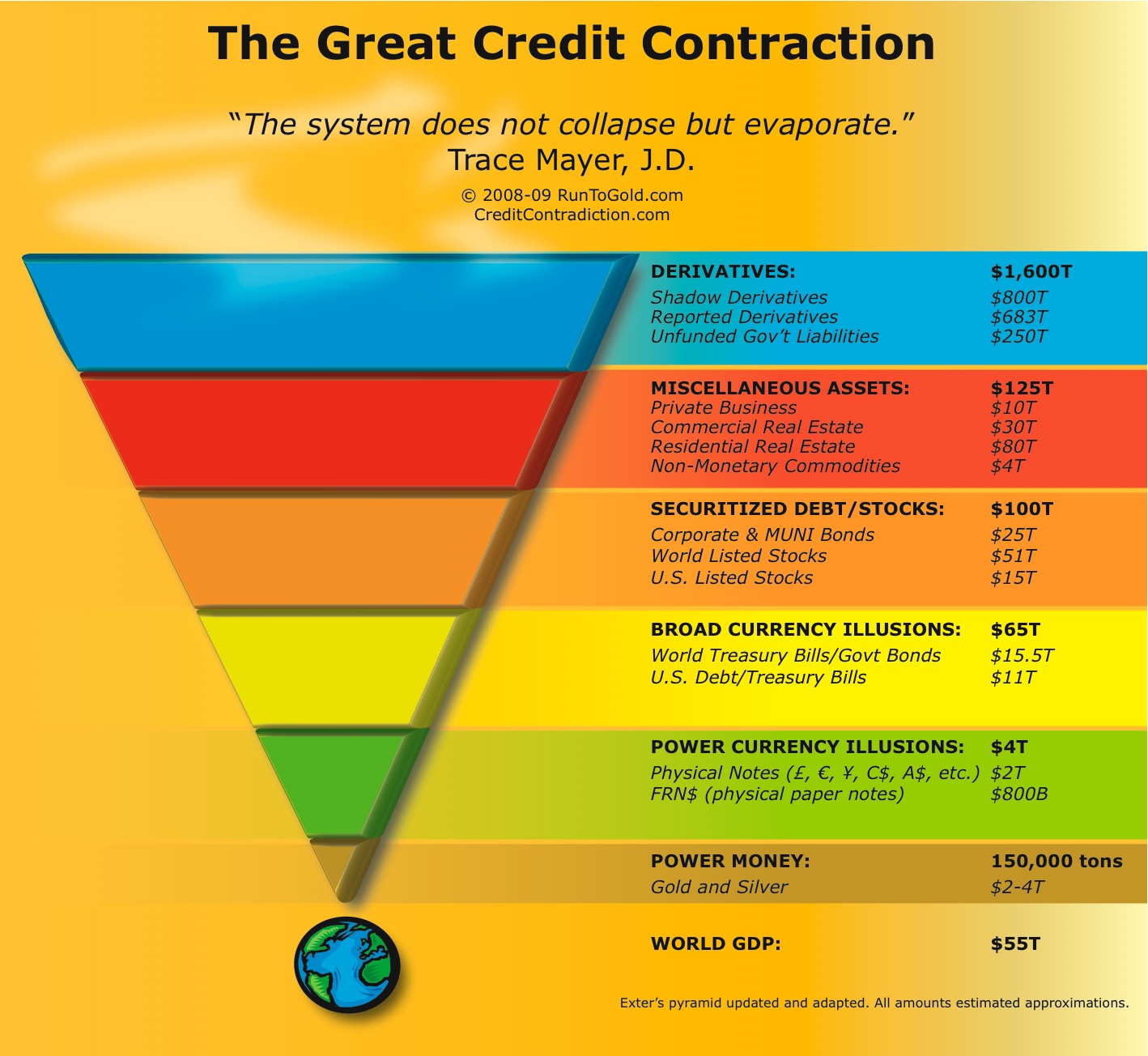I've read on some boards, I'm pretty sure this one as well, that when debts are defaulted on and bankruptcies run rampant that it is deflationary because wealth in terms of dollars is being destroyed. The thing is, that when I got to thinking about it it, nothing was destroyed- just transferred. A lender gives money to a lendee. The lendee purchases something with that money by giving it to a vendor of something.
When the person who borrowed the money defaults, nothing about the amount of wealth has changed, it's just that the vendor has the dollars and the lender has the product and the original borrower has no funds.
What am I missing or is it just a misleading myth?
Site Information
About Us
- RonPaulForums.com is an independent grassroots outfit not officially connected to Ron Paul but dedicated to his mission. For more information see our Mission Statement.




 Reply With Quote
Reply With Quote



Connect With Us